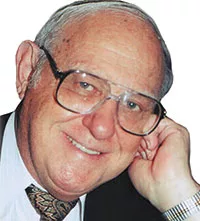Do you have enough wealth to be clobbered by the estate tax? Then read every word of this article. You’ll learn how to keep your wealth. But open your mind, because we are about to kill some sacred cows (really conventional wisdom of how most estate planning advisors, inadvertently, make you an estate tax victim).
What exactly are these advisors guilty of doing?
Traditional estate planning (TEP).
NOTE: TEP is the plan that most advisors use for a married couple. If your estate plan is done, chances are you have a TEP (and that’s good). TEP uses a rather simple will, called a “pour-over will” and a revocable trust. The will gathers any assets not in the trust when you die and pours these assets into the trust. All your assets are now in the trust, which contains your estate plan. The trust is commonly called an “A/B trust” or “family/residuary trust” or something similar.
Is there anything wrong with a TEP? Absolutely not, assuming it is properly drawn.
Then what’s the problem?
The TEP is normally the only plan, but is not designed to save estate taxes. It uses two estate tax tricks:
• The marital deduction, which defers any estate tax until the second death of the husband and wife (but when the second spouse dies, the IRS gets its pound of flesh)
• The unified credit, which protects the following amounts from estate tax (in 2014 is $5.34 million per person, $10.68 million for a married couple).
Any claim that a TEP can save you even a dime in taxes, over the unified credit is a myth. If your estate plan consists of only a TEP (or even includes an irrevocable life insurance trust [ILIT]), chances are you’ve been duped. If your advisor claims otherwise, challenge him or her to show you where and how in the document that the savings are created.
Yes, the above are tough accusations. Some of the accused may come after my scalp. But most will read what follows and improve the way they do estate planning.
How do I know?
Two reasons:
• Over the years I have talked to dozens of estate planning advisors after their clients asked me to review their estate plans. I am only talking about those plans that used only a TEP (or on occasion added an ILIT). In every case, except two, the advisor welcomed my input and supported the suggested additions to each client’s estate plan.
• For about 24 years (starting in the 80s) my assistant scheduled from 18 to 24 estate planning seminars (mostly trade association meetings). Every year, three to five of those seminars were given to “estate planning councils” (EPC) (attended by experts in estate planning: primarily lawyers, CPAs, financial advisors and bank trust officers). Always challenged each EPC audience to list how a TEP could save estate taxes. Never could any of those audiences add to the tax tricks described above.
My motivation for writing this article was born after receiving the following email from a reader (Joe) of this column, "We are small business owners. Most of our estate planning/succession is done, but there are some loose ends."
After a few questions, I agreed to review Joe's documents if he would send along three items: two financial statements (a personal one and his last year-end for his business, Success Co.) and a family tree (name and birthday for Joe, his wife and three kids).
When Joe's information package arrived, here’s what I discovered.
• The entire estate plan was a typical TEP.
• The lawyer (Larry) who drafted the TEP (it was well done) boasted on his stationery that he is “a board certified specialist in estate planning."
• Joe and his wife Mary (both 65 years old) own 5 percent (the voting stock) of Success Co. (an S corporation). 95 percent of the stock (nonvoting) is owned by their kids. In addition to Success Co., Joe and Mary own $23 million of other assets.
Without going into great detail this is what I advised Joe to do: Since a TEP does not legally speak until Joe and Mary die, a lifetime tax plan should be created.
Simply put, everyone of means should have two plans: a death plan (TEP) and a lifetime plan, the purpose of which (an example follows) is to employ various strategies so that by the time you go to the big business in the sky, the estate tax has been eliminated.
Remember, it’s not what you are worth today that’s socked with the estate tax, but the amount you (or your spouse) will be worth when both of you enter the pearly gates.
Also remember that Joe, like the typical guy, wants to control his wealth – particularly his business – to the day he dies.
Here’s the list of six strategies (actually there were more) we wove into a comprehensive lifetime plan for Joe, Mary, their family and business:
1. Asset protection strategies to protect Joe’s personal assets and, separately, the business assets.
2. A management corporation (a C corporation) was set up to provide Joe (but not other employees of Success Co.) with many tax-free fringe benefits (including long-term care and medical expenses).
3. A family limited partnership for Joe’s investment assets (mostly real estate and a stock/bond portfolio), reduced the value of these assets by 35% for estate tax purposes), combined with an annual gifting program to the kids and grandkids.
4. Create a plan to use a portion of the profits of Success Co. to pay for the grandchildren’s college education.
5. Set up a family foundation and a charitable lead trust as a tax-effective way to make substantial charitable contributions without reducing the children’s inheritance.
6. Used a concept called "Premium Financing" to buy $8 million of life insurance on Joe (Mary has medical issues), where premiums are paid using a bank loan. Joe never pays premiums. The bank loan will be paid out of the policy proceeds when Joe dies.
And finally, a question clients always ask, “Irv, how do I know when my estate plan is done and done right?"
Here’s a two-point answer: (1) When your advisor can look you in the eye and tell you that your plan will eliminate the impact of the estate tax. For example, if you are worth $14 million, $14 million to your family (all taxes paid in full), if worth $44 million, $44 million to your family. Fill in your own number. And (2) the advisor can explain in simple English how each strategy works to save those millions.
A final note
The lifetime plan for Joe and Mary will get every dollar of their wealth to their family. The estate tax monster will get NONE.






